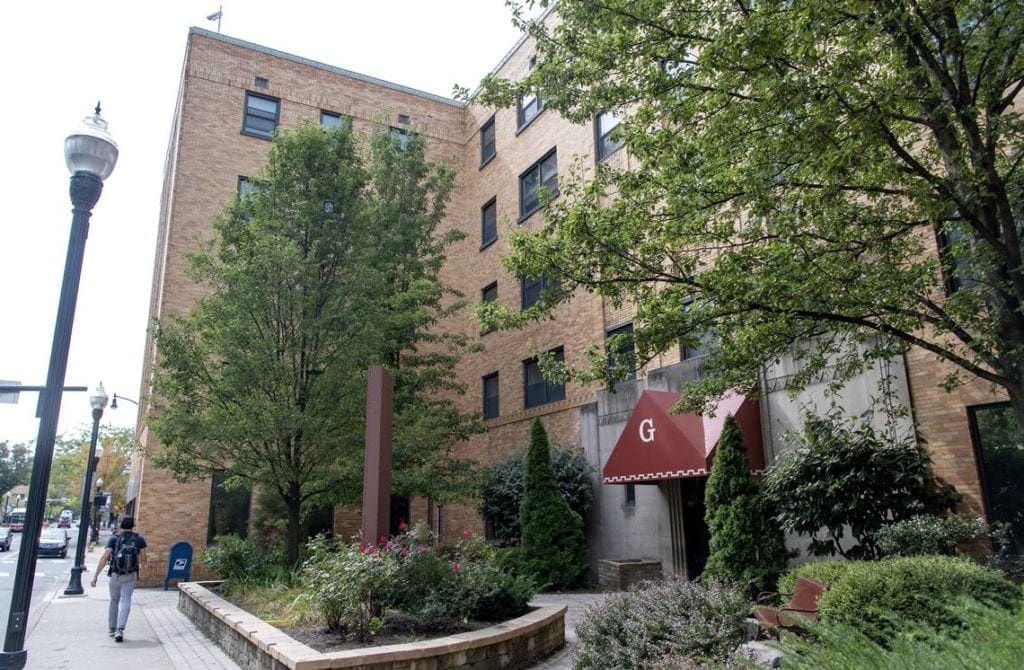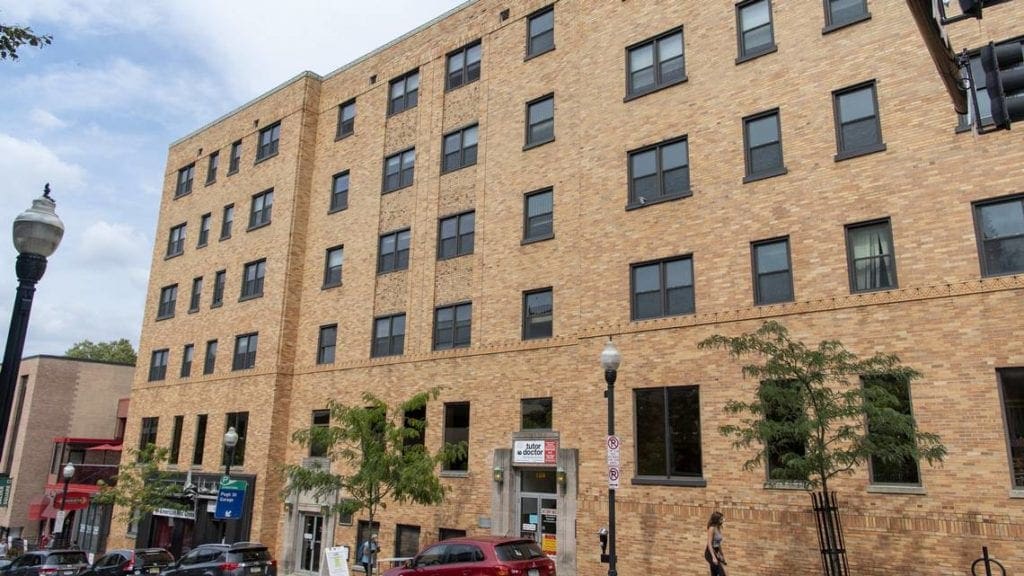‘Protecting and preserving.’ Glennland Building sold, will become boutique hotel
By: fioreMarketing | September 11, 2019 | Original Article
by Sarah Paez |
The historic Glennland Building in downtown State College was acquired by Scholar Hotel Group in late August and will soon undergo work to become a “boutique, extended-stay hotel,” according to President and founder Gary Brandeis.
The Campbell family, who has owned the Glennland Building for eight decades, transferred the property at an undisclosed price to Ardmore-based developer Scholar Hotel Group, which owns and operates the Hyatt Place in the Fraser Centre. As part of the agreement, the Campbells will become partners in the venture to restore and renovate the Glennland Building into a mixed-use space housing a boutique hotel and several already-existing businesses.
“Part of what we’re doing is we’re protecting and preserving the building but re-imagining … the building for the future,” Brandeis said.
Brandeis said his company studied the market and felt there was unmet demand for an extended-stay hotel. With such close proximity to the university and State College’s walkable downtown, he said the new hotel should appeal to visiting professors, out-of-town corporate clients, conference attendees and other long-term visitors.
Part of Scholar Hotel Group’s initial interest in the project stemmed from the existence and passage of the Local Economic Revitalization Tax Assistance, a tax abatement program created by the state to allow local governments to incentivize the redevelopment of aging or deteriorating properties.
Both State College Borough Council and the Centre County Board of Commissioners approved the LERTA for State College, allowing 27 historic properties — including the Glennland Building — in downtown State College to be subject to tax abatement for commercial use rehabilitation.
But State College Area School District, which collects about two-thirds of local taxes, rejected the LERTA in August, meaning any developer of an eligible LERTA property will have to pay school district property taxes.
That “is unfortunate,” Brandeis said, because it means the tax abatement will only apply to about one-third of local property taxes.
“We had to take a re-look at the project, we scaled it back, we reduced costs … to sort of mitigate the loss of benefit of not getting the school district to participate,” he said.
Graduate Hotels’ owner A.J. Capital Partners tried to acquire the Glennland Building last March, but the sale fell through when the buyer found building renovations would be significantly more costly than originally estimated.
This week, workers will begin putting up fencing around the Glennland Building and building wood structures around a single-family home on the corner of McAllister Street and Beaver Avenue. As part of the project, that home will be demolished early next week, Brandeis said. Then, demolition will happen inside the building, with the outside structure undisturbed.
In the coming months, workers will replace the roof and repair the building’s facade by refacing and waterproofing it, Brandeis said. Several of the businesses located on the lower level using the Pugh Avenue entrance of the building will remain, including the Red Cross office and two dentists’ offices.
“We’re preserving and protecting this building, we’re not tearing it down,” Brandeis said. “In a lot of ways, the public won’t really notice anything.”
Brandeis said he and his company consider themselves temporary stewards of the building to ensure its long life. As a graduate of Penn State, State College is a special area to him, and he wants the Glennland to be a community asset with a welcoming environment.
“It’s a wonderful, wonderful community, and it’s really important to me … that we do the right thing and the projects that we do hopefully meet some demand,” he said.
Construction is slated to wrap up in summer 2020.
View Original Article

